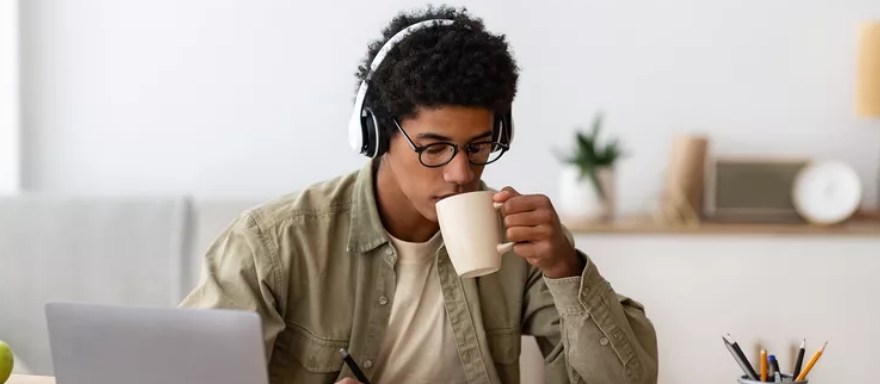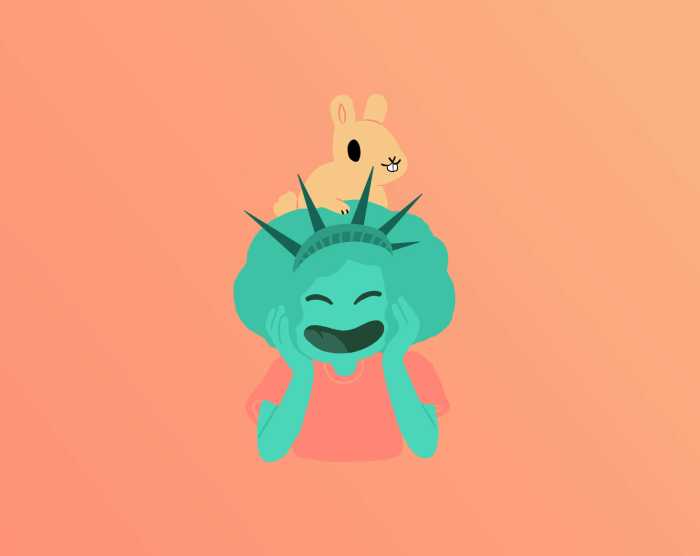
How Safe is Caffeine for Kids?
I once met a woman who claimed she never drank coffee in her life. Despite being well into her thirties, she said the addictive beverage never appealed to her because it’s a “grown-up drink.” When I heard this, I laughed and realized I could totally relate. I didn’t start drinking coffee until I was in my late twenties and already had my first child (I’m not sure why my alcoholic beverage consumption wasn’t held to the same standards but hey, I’m not on trial here).
Fast forward to being the parent of a teen and tween – ones who don’t subscribe to the “coffee is for grownups” mentality – and I find myself wondering how bad caffeine for kids really is.
Admittedly my kids, 15 and 12, both enjoy a small amount of coffee on the rare occasion I allow it. But coffee isn’t the only caffeinated beverage to be wary of. Many energy drinks, often marketed to and consumed by young people, contain dangerous levels of caffeine. Earlier this year some schools banned the popular drink Prime, citing that it contained more caffeine than Red Bull. Monster, another popular energy drink, has been under fire for potentially causing the deaths of several teens as well as a 6-year-old boy in Mexico.
So how dangerous is caffeine for kids? How much is too much? And what about for adults? We brought our questions about caffeine for kids and adults to Dr. Raj Dasgupta, Chief Medical Advisor of Sleep Advisor, an organization dedicated to sleep health awareness. Dr. Raj is a board-certified physician specializing in internal medicine, pulmonology, critical care, and sleep medicine.
Pssst…. Here’s How to Manage Screen Time During the School Year
How does caffeine impact sleep?
Dr. Raj: Caffeine is a stimulant that blocks the effects of adenosine, a neurotransmitter that makes you feel sleepy. This means that caffeine can make you feel more alert and awake, even if you are tired. Caffeine can stay in your system for up to 6 hours, so if you drink coffee or another caffeinated beverage in the afternoon or evening, it can still be affecting your sleep at night.
How much caffeine for kids is safe? What is the minimum age recommended for caffeine consumption?
Dr. Raj: The amount of caffeine that is considered safe for young people to consume varies depending on their age and weight, but the American Academy of Pediatrics recommends that children under the age of 12 consume no caffeine and that adolescents between the ages of 13-19 consume no more than 100 milligrams per day.
What are the long-term and short-term effects of caffeine for kids?
Dr. Raj: In the short-term, caffeine can increase alertness, reduce fatigue, improve mood, and boost focus and concentration. However, it can also lead to anxiety, restlessness, insomnia, headaches, and stomach upset. In the long-term, caffeine can also increase the risk of anxiety and depression, difficulty sleeping, irregular heartbeat, high blood pressure and heart disease.
Is there a link between caffeine and ADHD in young people?
Dr. Raj: The most common medical treatment for ADHD is stimulant therapy. These drugs can improve focus, attention span and help control impulsive behavior. The most widely used stimulant, and one of the most popular drugs in the world, is caffeine. However, limited studies have looked at how caffeine can affect ADHD symptoms and the results have been mixed. Therefore, even though caffeine is a stimulant, it’s not generally recommended as a treatment for ADHD because it hasn’t proved to be as effective as current FDA approved prescription medications.
Caffeine can have mixed effects on young people with ADHD. It may improve attention and cognitive function in some people, but it can also worsen symptoms in others. Caffeine can also interfere with sleep, cause anxiety and irritability, and lead to other physical side effects. The American Academy of Pediatrics recommends that children and adolescents consume no more than 100 milligrams of caffeine per day. Bottom line point is that some people find that caffeine helps their ADHD, while others find that it doesn’t offer any benefit at all, or even makes their focus worse. Pay attention to your body and work with your doctor or healthcare provider to find out what is best for you.
Besides coffee, are you aware of any other products containing a lot of caffeine that young people should avoid?
Dr. Raj: Products containing a lot of caffeine that young people should avoid include energy drinks, soda, chocolate, tea and over-the-counter medications.
How much caffeine is safe for adults to consume?
Dr. Raj: The Food and Drug Administration (FDA) considers 400 milligrams (mg) of caffeine a day to be safe for most healthy adults. This is about the amount of caffeine in four cups of brewed coffee. However, some people are more sensitive to the effects of caffeine than others. If you are sensitive to caffeine, you may experience side effects such as anxiety, insomnia, or headaches even at lower doses.
What are some healthy alternatives for beating a mid-day slump without caffeine?
Dr. Raj: There are all natural ways to improve your energy levels and alertness without the negative side effects of caffeine. If you are regularly experiencing mid-day slumps, try incorporating one or more of these strategies into your day: getting some sunlight, taking a power nap (quick mid-day 20 minute nap), drinking water, eating a healthy snack, stretching or engaging in light exercise, listening to music or taking a break from your work or studies.
How addictive is caffeine? What do you recommend for those who are addicted and trying to safely quit consuming it?
Dr. Raj: Caffeine is a stimulant that can be addictive. It is not as addictive as other substances, such as alcohol or nicotine, but it can still be difficult to quit. The best way to avoid withdrawal symptoms is to gradually reduce your caffeine intake.
Start by reducing your daily caffeine intake by 100 milligrams each week. For example, if you usually drink two cups of coffee per day, which is about 200 milligrams of caffeine, start by drinking one cup per day for a week. Then, the next week, reduce your intake to half a cup per day. Continue reducing your intake by 100 milligrams each week until you are no longer consuming any caffeine. While you are gradually reducing the amount of coffee, tea, soda and energy drinks you have each day, begin to substitute caffeinated beverages with water. Water is a healthy choice and satisfies the need for drinking a liquid. Water also naturally flushes caffeine from your body and keeps you hydrated.
Pssst… Check out our Guide to Choosing a High or Middle School






